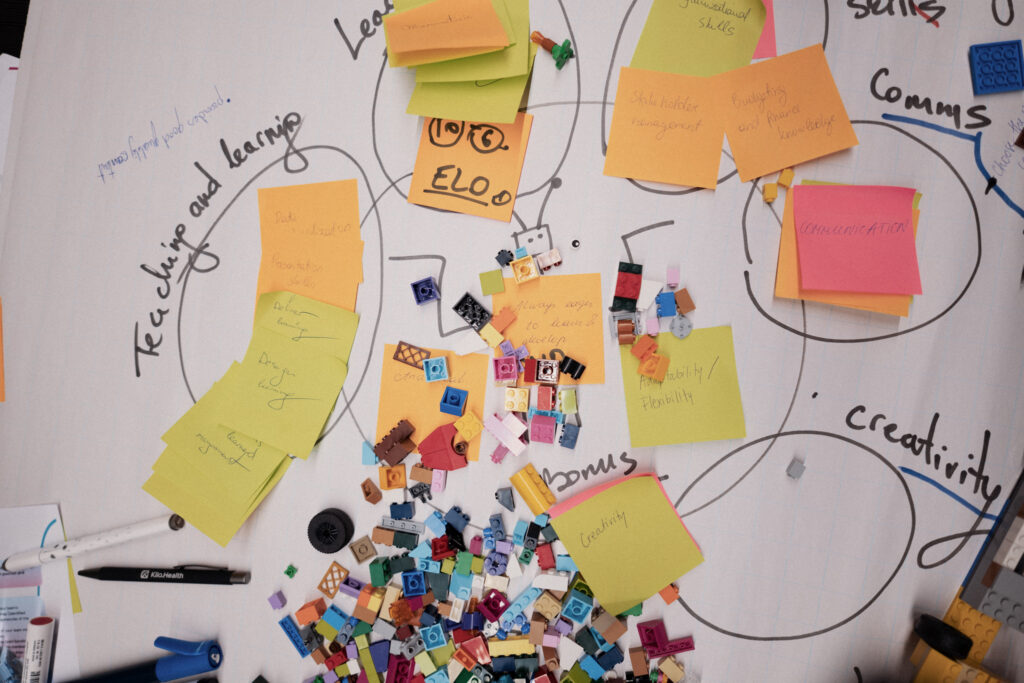Just imagine having a unique idea, a completely new concept that could change people’s lives. You want to bring this project to fruition as quickly as possible without spending too much time building a team of professionals, carrying out tests and getting the best possible investment. Do you think you will succeed?
Now consider the opposite scenario: your idea is not revolutionary, but you are putting everything you have into it.
This may seem like a philosophical question, but there are answers. In this article, Kilo Health leaders will share their thoughts on balancing idea and execution.
Important questions to ask yourself
Most startup executives will tell you that before you put your idea in the “successful” category, you need to ask yourself a few questions to determine if the idea is as good as you think it is.
As Kasparas Aleknavicius, doctor and co-founder of probiotic supplements, explains:
“I had quite a few ideas on my plate, including apps and supplements. And guess what? Bioma came out on top. It is important to ask yourself: which of your ideas has a solid basis in reality?
Additionally, we had app ideas and other supplement ideas, and looked at many other products on the market, and it became clear that probiotics had the strongest ground. It was a trend, but not one of those weak trends: probiotics somehow remained relevant.
What made this product successful was finding market fit, as it directly relates to the chances of long-term success and sustainability. It helps startups understand who their ideal customers are, their needs and how they can meet them.
Agne Belopretovic, head of the research team, explains that the success of a startup depends on its understanding of the market, its competitiveness, its efficient use of resources, its communication and its ability to stand out with an argument unique selling point (USP).
“It’s important to know the answer to the question: ‘Will my product solve a problem?’ And of course, being able to celebrate every small step forward and, in the face of challenges, remain flexible and always open to feedback and change,” she notes.
Vilius Česnauskas, Director of Business Development, explains the questions they evaluate when generating ideas at Kilo Health:
“We create a product by determining what problem we can solve for the consumer, how to present it and how it will stand out in the marketplace. Then we decide on its look and market strategy. We then calculate the expected return on investment and decide if it is worth risking our capital for potential gains.
Passion for your chosen field
Now let’s look at things from another point of view.
Reading this, you might think that finding the perfect market fit and having the most unique idea are the keys to success. However, this is not always the case either.
In fact, many successful CEOs are driven by a deep personal passion for their chosen field.
If you don’t find the topic of the product personally exciting or interesting, it may indicate that you are not yet ready to become the founder, and the question between idea and execution may no longer be relevant. ‘importance.

Ultimately, the desire to make a meaningful impact is often more crucial than simply fitting into the right market. For example, Vitalijus Majorovas, co-founder of a vagus nerve stimulator, is so passionate about his field that he didn’t give up after several failures.
“I failed 4 times before having the idea for Pulseto.
When nothing seemed to be working, I started asking myself: Why am I succeeding in the corporate world but struggling as a startup entrepreneur? But I didn’t give up.
As we all know by now, I finally hit the jackpot with my fifth product idea. But there was a problem: unlike Kilo Health’s other products, this one wasn’t an app: it was a physical device.
Cesnauskas also highlights the importance for a business idea creator to firmly believe in their idea and understand its monetization prospects:
“Those are the two most crucial things. If the leader doesn’t believe in what they want to sell or has unrealistic expectations of making money, success becomes almost impossible.
Your idea is just a story until you put it into action
“I remember a conversation with a friend in a cafe, where he was sharing a health-related idea over a beer. I mentioned later that I was heading to Kilo Health, and he jokingly said, “Are you stealing my idea?” The fact is that everyone has ideas, there are a dozen of them. An idea is just a story until you put it into action,” says Toms Zalmanis, CEO of Business Category.
Gytis Labasauskas, co-founder of Greatness, explains that what is important is to ensure that the developed product meets the needs and expectations of the target market while having a sales strategy that effectively communicates the value of the product and drives growth. customer acquisition.
“It’s crucial to have a clear value proposition that effectively communicates your product’s unique selling points. At Greatness, we have a highly qualified sales team that diligently keeps abreast of the latest market updates and information. Their dedication ensures that our customers truly find value in our habit tracking product by viewing it as a tool that fits seamlessly into their lives, helping them develop habits that lead to excellence.
The ultimate answer
Matas Olendra, Head of Innovation, points out that ideas usually emerge when old problems are approached from a new perspective:
“Ideas generated typically go through a multi-step process. First of all, we need to gather information: study the market and identify direct and indirect competitors. Then, with the help of a team of experts, a refined evaluation process and the latest research tools, we collect and present the necessary information to a larger team, who develop the idea during creative sessions.
In conclusion, the idea and execution are crucial for the success of a startup. However, having a unique idea is not enough, but flawless execution can be. Ideally, you need to believe in your idea, develop a marketing strategy, test it in the real world, and collect customer feedback.
Then do your best to execute it, getting as close to success as possible.
You don’t have a startup idea, but you have the courage? Check out our Kilo Health Incubator Challenge.




